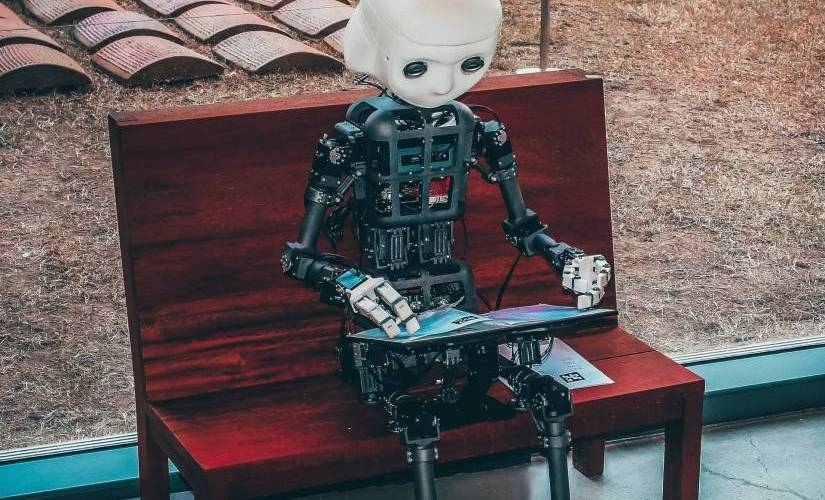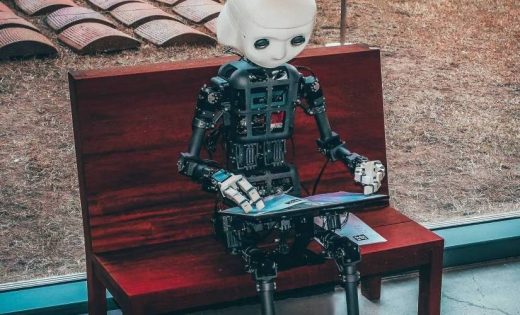1,300 Experts: AI is Not a Threat to Humanity!
1,300 Experts: AI is Not a Threat to Humanity!

There has been a lot of interest and some fear in the field of artificial intelligence (AI) in recent years. As the limits of what can be achieved in technology are pushed further, and further, questions about the safety and morality of AI have come to the fore. However, a recent open letter signed by more than 1,300 AI experts suggests a more positive outlook on AI’s potential. According to experts, artificial intelligence is a force for good, not a threat to humanity.
The Chartered Institute for IT (BCS) has organized an open letter to debunk the widespread fear of artificial intelligence (AI) taking over the world. As explained by BCS CEO Rashik Parmar, the letter shows that the UK tech community does not believe in the “nightmare scenario of evil robot overlords.” The signatories of this letter disagree with the likes of Elon Musk, who have voiced concerns about the existential risk posed by super-intelligent AI.
Cybersecurity startup founder and BCS signatory Richard Carter calls the idea that artificial intelligence poses a threat to humanity “far-fetched.” He thinks we’re not there where something like that is possible. The signatories represent a wide range of industries, but they emphasize AI’s potential benefits.
Signatory and digital health and social care expert Hema Purohit discusses how AI already enables new methods to detect serious illnesses. During routine eye exams, for instance, medical systems can now detect signs of cardiac disease or diabetes. In addition, AI may help speed up drug trials, which would benefit medical progress.
Author and fellow signatory Sarah Burnett uses the agricultural industry to illustrate the benefits of AI in the business world. Artificial intelligence (AI)-enabled robots can now accurately pollinate plants and identify and eradicate weeds, reducing the need for weed killers.
While highlighting AI’s potential benefits, the BCS letter also calls for its responsible growth and oversight. According to the signatories, the United Kingdom could take the initiative in developing technical and professional standards for AI jobs. To ensure that AI is developed ethically and inclusively, they propose the establishment of a strong code of conduct, international collaboration, and fully resourced regulation.
UK Prime Minister Rishi Sunak plans to hold a global summit on AI regulation in line with this vision. This summit will serve as a forum for deliberation over the trajectory of AI and the steps that must be taken to mitigate any problems that may arise. Even if you believe existential dangers exist only in science fiction, you must deal with real-world issues.
The potential threat that AI poses to employment is a significant worry. Up to 300 million jobs worldwide could be automated, which would have far-reaching effects on the job market. Some businesses have already stated their intention to halt recruitment efforts in specific departments as they prepare to implement AI systems. According to the BCS letter’s signatories, AI will not replace humans but rather boost their productivity.
Richard Carter uses personal experience to argue that artificial intelligence tools like ChatGPT have their place but should not be relied upon exclusively. By drawing an analogy between AI and a “very knowledgeable and a very excitable, 12-year-old,” he emphasizes the need for human input in decision-making and responsibility. Companies will always need humans in the loop to take responsibility in case of any catastrophic events or errors.
The BCS letter’s signatories agree that regulations are necessary to safeguard against the inappropriate application of AI. To guarantee the ethical creation of AI technologies, Hema Purohit stresses the need for testing, governance, and assurance. She stresses the importance of having rules in place to help direct the development process and reduce risks.
Beyond the realm of regulation, AI has far-reaching ethical implications. Transparency and explainability are becoming increasingly important as AI becomes more pervasive in society. Unfortunately, many AI algorithms hide their inner workings in opaque “black boxes,” making it impossible to comprehend their rationale. This opacity can fuel prejudice and inequality. To address this issue, scientists are creating AI systems that can provide explanations for their decisions.
In conclusion, the open letter signed by more than 1,300 experts brings a sense of optimism to the discussion despite continuing concerns about AI. Artificial intelligence has the potential to significantly impact many fields. The United Kingdom (UK) can take the lead in developing ethical and inclusive AI technologies by establishing professional and technical standards, encouraging international collaboration, and enacting stringent regulation.
Society must learn to navigate the ethical landscape and address potential challenges as AI develops further. We can use the potential of AI for good if we accept and responsibly encourage its development. Experts in artificial intelligence can help us shape the future of technology and ensure AI is used for good.
First reported on BBC
Frequently Asked Questions
Q. Is AI a threat to humanity?
According to the open letter signed by over 1,300 AI experts, AI is not a threat to humanity. The signatories debunk the fear of AI taking over the world and emphasize AI’s potential benefits in various industries.
Q. How is AI benefiting healthcare?
AI is already enabling new methods to detect serious illnesses in healthcare. For instance, during routine eye exams, medical systems can now detect signs of cardiac disease or diabetes. Additionally, AI may help speed up drug trials, leading to medical progress.
Q. Can AI benefit industries beyond healthcare?
Yes, AI is already making a positive impact in various industries. In the agricultural industry, AI-enabled robots accurately pollinate plants and identify and eradicate weeds, reducing the need for harmful weed killers.
Q. How should AI development be regulated?
The BCS letter’s signatories call for responsible growth and oversight of AI. They propose establishing technical and professional standards for AI jobs, a strong code of conduct, international collaboration, and fully resourced regulation to ensure ethical and inclusive development.
Q. What is the role of humans in AI development?
While AI can boost productivity, the signatories emphasize the importance of human input and responsibility. Human involvement is essential, as companies will always need people to take charge in case of catastrophic events or errors.
Q. Are regulations necessary to safeguard AI’s appropriate application?
Yes, regulations are necessary to ensure AI technologies’ ethical creation and use. Testing, governance, and assurance are essential to direct the development process and reduce potential risks associated with AI applications.
Q. How can AI’s ethical implications be addressed?
Transparency and explainability are crucial as AI becomes more pervasive in society. Researchers are working on creating AI systems that can explain their decisions, mitigating issues related to opaque “black box” algorithms that can lead to prejudice and inequality.
Q. What is the conclusion regarding AI’s future?
Despite concerns, the open letter brings optimism, emphasizing that AI has the potential to significantly impact various fields positively. Responsible development and encouragement of AI technologies can lead to a future where AI is used for good, guided by experts in the field of artificial intelligence.
Featured Image Credit: Andrea DeSantis; Unsplash; Thank you!
The post 1,300 Experts: AI is Not a Threat to Humanity! appeared first on ReadWrite.
(47)


